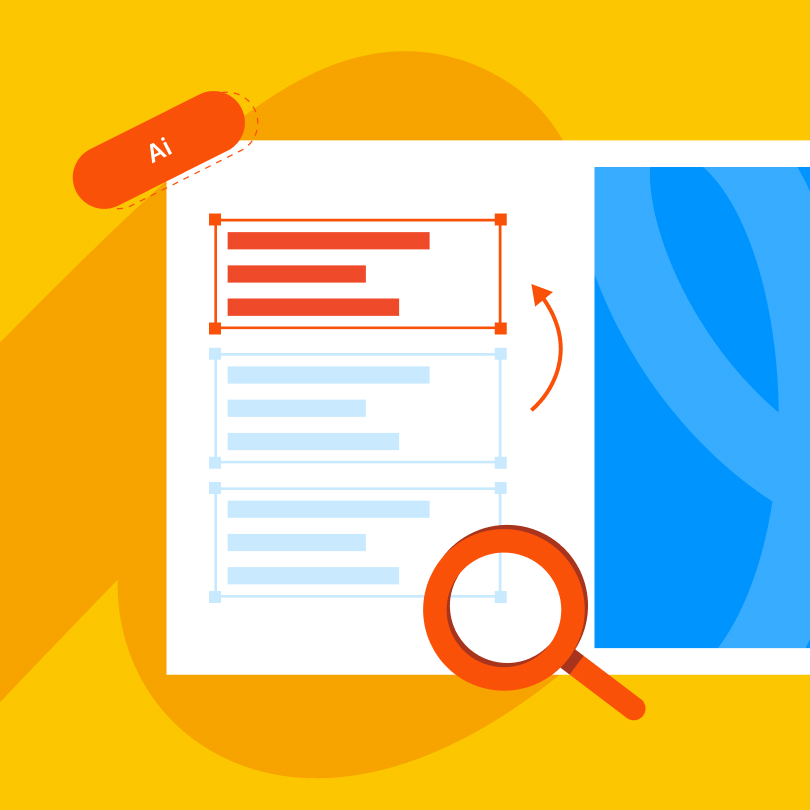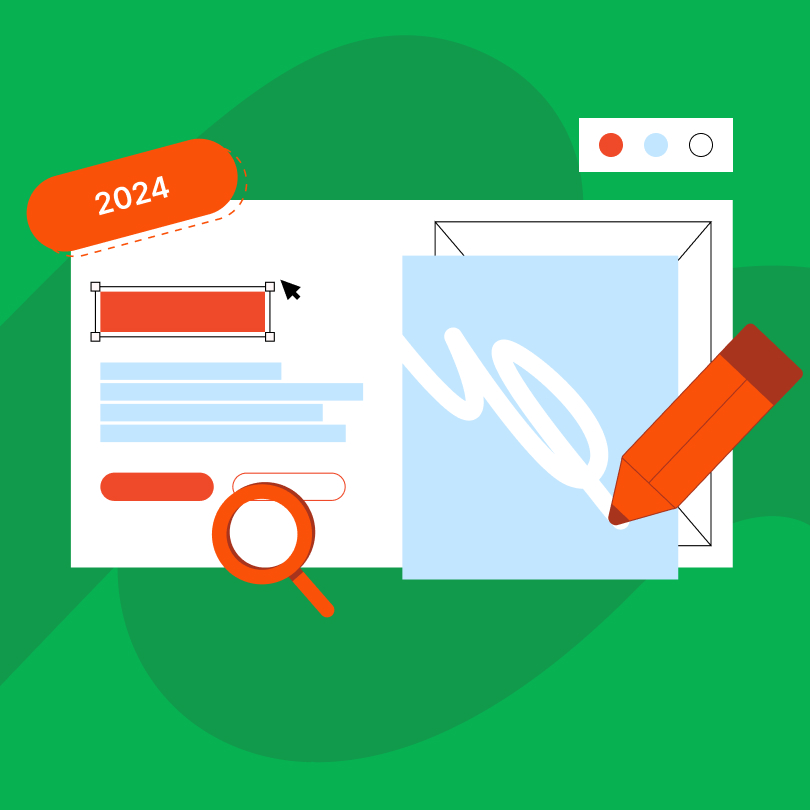The short answer: no, AI content isn't bad for SEO. In fact, AI can help you produce better results and spark innovation.
Whether you’re open to new technologies and breakthroughs or prefer long-established strategies, this tech isn’t going anywhere. But although the AI buzz has gained momentum in recent years, this technology isn’t only ChatGPT.
AI has played a significant role in SEO for quite some time. For instance, Google has been developing and leveraging AI for over two decades, as its Google Translate and Google Lens features depend on this technology.
Other notable examples are Clearscope and MarketMuse from the 2010s, AI-driven content optimization tools. You might have been working with these technologies without knowing they use natural NLP algorithms to suggest relevant keywords, topics, and semantic terms.
But how precisely does AI content affect SEO? – Time to dig deeper into this debate.
Is AI-Generated Content Bad for SEO?
Albeit it’s easy to assume that automation obliterates creativity, originality, and art, technology gives humans efficiency that can help them stay in the flow state longer. The same applies to SEO.
AI can empower marketers and writers by assisting them in understanding their audience, anticipating trends, and streamlining research.
That’s why speed and reduced costs are only a part of the reason 65 percent of businesses generate better results with AI. Sixty-seven percent also agree it improves content quality.
Thanks to that, AI can contribute to a higher content marketing ROI. That gives a significant advantage to businesses using AI, and most companies that don’t use it don’t know how.
However, not everything is as good as it sounds. Using AI-generated content is more complex than simply asking SEMrush’s Keyword Magic Tool to list the best keywords or instructing ChatGPT to write an engaging article.
Before moving to how to use AI effectively to support your SEO efforts, let’s ensure you understand its complexities.
Key Considerations When Developing AI Content for SEO Success
If you’re wondering whether to experiment with AI-generated content to boost your SEO, here’s what you must consider first.
Google Search’s Updated Guidance About AI-generated Content
As AI continues to expand and become impossible to ignore, Google published guidelines for AI content and SEO. The document highlights that Google doesn’t penalize AI-generated content.
The rules and standards haven’t changed, and search engines will continue rewarding high-quality, original content, regardless of how you produce it. Your content should still demonstrate the E-E-A-T qualities: expertise, experience, authoritativeness, and trustworthiness.
You’re not violating the guidelines as long as you don’t use automation to manipulate search rankings. Google’s spam policies are the best resource to revisit for what’s considered spam.
Whether you use AI or not, you should still aim to write SEO-friendly content that provides value and resonates with your audience.
Risks of AI-Generated Content
AI-produced content boosts efficiency, reduces costs, and helps brainstorm ideas. However, it includes limitations marketers must consider before turning to automation.
- Incorrect information: AI models, such as ChatGPT, can’t determine the accuracy of the information they gather online or from their training database. That puts you at risk of using unreliable, incorrect, outdated, or biased information if you don’t verify it.
- Duplicate content: The internet will become an endless stream of regurgitated content if every marketer copies and pastes AI output. Google crawlers may mark such content as lacking expertise and originality. Meanwhile, users could perceive it as spam, hurting a brand’s reputation and rankings.
- Plagiarism and copyright infringement: AI generates content based on patterns learned from existing data. It may not discern whether its content infringes upon someone else’s copyright. Moreover, AI’s training data might contain plagiarized or copyrighted content, meaning its output may fail plagiarism software checks.
- Lack of creativity: While AI can generate content based on patterns and trends in existing data, it may struggle to produce genuinely original and creative work. Without a human touch, it could feel deadpan and trite.
- Lack of relatability: Although AI simulates human intelligence, it fails at reproducing human emotions, experiences, and cultural context. Yet, those elements are vital for authenticity that helps people relate to your content. As a result, AI-generated content can come across as impersonal and lacking depth.
Even though AI content isn’t risk-free, it’s not inherently bad. Like every technology, it all depends on how you use it and incorporate it into your SEO strategy.

3 Tips on Using AI Content for SEO
Using AI models to create SEO content can only work if you don’t remove the human element from the equation. But you can expect the best outcomes if you acknowledge the following.
1. Transparency
Although Google guidelines don’t encourage giving AI an author byline, it recommends making it clear to the readers that AI was part of the content creation process. Honesty goes a long way, and being candid about incorporating technology into your content helps build trust with your audience.
Moreover, it demonstrates your willingness to leverage innovative technologies responsibly to deliver high-quality content. For instance, you can practice this by including a line of copy at the end to share that you used AI to edit the text or brainstorm initial ideas.
2. Brainstorming
It’s tempting, but you should never use AI to replace human output. Whether you’re writing a copy, an article, or creating a visual, technology shouldn’t be its sole creator.
The most effective way of using automation is to stimulate a brainstorming session. It can help spark the initial ideas, remove unnecessary work, and accelerate editing.
However, the following are the most common uses of AI content for SEO:
- Keyword ideas: Keyword research often takes time and unnecessarily prolongs the writing process. AI models can streamline this task by suggesting supplemental keywords based on your primary keyword. You can also check tools, such as AnswerThePublic, that show the most common phrases and questions people ask around your keyword.
- Background information: Whether you’re writing on a complex topic or struggling with a short deadline, AI can assist in gathering and analyzing the background information. For instance, you can feed ChatGPT all the data you found online and ask it to assess and summarize the most important parts. If you’re asking AI to generate information without sharing verified resources, you must check whether its output is accurate and up to date.
- Outline creation: Relying solely on AI to write your content is wrong but using it to set the foundations isn’t. For instance, ChatGPT and Claude are great tools for creating an outline based on your topic and keywords. That will cut the time you’d need to figure out the article structure and vital points to cover, leaving more room for research and writing.
- Proofreading and editing: Even though you should always check your content once it’s complete, AI can help proofread and edit by pinpointing grammar, spelling, and punctuation errors. Moreover, AI-powered tools like Grammarly can analyze readability scores, suggest improvements to sentence structure, and offer recommendations for optimizing content to align with SEO best practices.
3. Thought Leadership
Establishing thought leadership is among the best strategies to satisfy Google E-E-A-T requirements and elevate SEO. It demonstrates expertise and credibility within a particular industry or niche and increases the odds of industry experts and media outlets noticing your brand.
That’s why you can’t rely on AI being your quick-fix solution. Automation may meet your immediate content needs, but long-term success requires depth and authenticity.
Instead of publishing new AI-generated content every day to emphasize consistency and speed, focus on quality, expert-driven, and human-centric content.
Write in-depth, long-form content, including articles, whitepapers, and case studies corresponding with user intent. Or create podcasts, webinars, and striking videos that foster genuine connections.
Continue employing SEO strategies that support thought leadership, prioritizing long-tail keyword optimization. Above all else, prioritize expert, human-generated content over AI-generated material to position your brand as an authoritative voice in your field.
Continuous Optimization and Updates
Today’s AI allows you to scale tasks that would have taken much longer only a few years ago. That illustrates that the AI of tomorrow could have features and possibilities we can’t imagine now, requiring continuous monitoring.
Keep an eye on incoming updates and new automation tools, as they will enable greater optimization and SEO improvements. For instance, future AI models may improve at recommending strategic keyword placement in meta titles, descriptions, headings, and alt tags to improve relevance and visibility.
Staying ahead of trends and new technologies will help you plan your SEO strategy and leverage content innovations early. However, blending AI with human input and supervision will yield the best results.
Digital marketing professionals can guide you in striking the right balance between AI and human involvement and elevate your SEO efforts. But whether you decide to work independently or team up with experts for SEO services, prioritize creating original, high-quality content regardless of the production method.
FAQ
Q: Is AI content bad for SEO?
A: AI-written content isn’t inherently bad for SEO. Instead, it can improve results, spark innovation, and empower marketers and writers by enhancing audience understanding, trend anticipation, and research streamlining.
Q: Does Google penalize AI content?
A: No, Google doesn’t penalize AI content, but it may penalize content that doesn’t meet its E-E-A-T quality guidelines, including issues like plagiarism, duplicate content, and lack of relevance or originality, regardless of whether it’s AI-generated or human-created.
Q: What are the risks of AI content for SEO?
A: The risks of AI-generated content for SEO include the potential for inaccurate information, duplicate content issues, plagiarism and copyright infringement concerns, limitations in creativity, and a lack of relatability due to the inability to replicate human emotions and cultural context.
Q: What are the best ways to use AI content for SEO?
A: The best way to use AI content for SEO is to stay transparent about its role in the content creation process, use it for brainstorming and gathering background information, or for creating outlines, proofreading, and editing.





